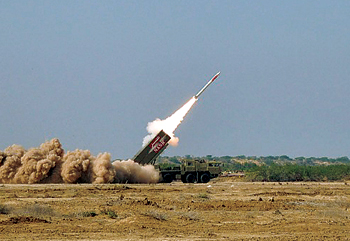INDIAN ARMED FORCES CHIEFS ON OUR RELENTLESS AND FOCUSED PUBLISHING EFFORTS

The insightful articles, inspiring narrations and analytical perspectives presented by the Editorial Team, establish an alluring connect with the reader. My compliments and best wishes to SP Guide Publications.

"Over the past 60 years, the growth of SP Guide Publications has mirrored the rising stature of Indian Navy. Its well-researched and informative magazines on Defence and Aerospace sector have served to shape an educated opinion of our military personnel, policy makers and the public alike. I wish SP's Publication team continued success, fair winds and following seas in all future endeavour!"

Since, its inception in 1964, SP Guide Publications has consistently demonstrated commitment to high-quality journalism in the aerospace and defence sectors, earning a well-deserved reputation as Asia's largest media house in this domain. I wish SP Guide Publications continued success in its pursuit of excellence.
- Appointments Committee of Cabinet approves one-month extension in service of Chief of the Army Staff
- Admiral Dinesh K. Tripathi assumes Command of the Indian Navy as 26th Chief of the Naval Staff
- Prime Minister witnesses 'Bharat Shakti' – a Tri-Services Firing and Manoeuvre Exercise in Pokhran, Rajasthan
- Interim Defence Budget 2024-25 — An Analysis
- Union Defence budget 2024
- Prime Minister Modi Commemorates Indian Navy Day in a Grand Ceremony
Pakistan's Tactical Nuclear Weapons

The fact is that while Pakistan has continued to tread on the path of terrorism, the TNWs are adding a more dangerous dimension to it under the protective cover of the US administration and Saudi Arabia
At a recent event at Carnegie Endowment, a Washington, DC-based think tank, Khalid Kidwai, a former Pakistani General who reportedly was custodian and planner of Pakistan’s nuclear security and strategy for many years and Adviser to Pakistan’s National Command Authority, advocated that Pakistan needs Tactical Nuclear Weapons (TNWs) to deter India’s Cold Start doctrine, which is aimed at a quick punitive military strike in the event of another Mumbai-style operation by Pakistani intelligence. He insisted that development and deployment of TNWs actually made war less likely because India had had to rethink the Cold Start strategy.

Incidentally, the Shaheen-III missile has a range of 2,750 km, giving it the capability to reach every part of India — but also potentially to reach into the Middle East, including Israel. Pakistan, however, says her nuclear programme is only India specific. The fulcrum of Pakistan’s TNW is the Nasr missile having a range of 60 km. Pakistan’s development of smaller warheads built for use on battlefields, in addition to longer-range weapons, has increased international concerns that they could get into rogue hands because of the pervasive threat of militants in the country.
What is causing more worry is that Pakistan’s nuclear strategy includes developing nuclear warheads for deployment at sea; both in surface vessels and submarines. Pakistan had already established her Naval Strategic Force command in 2012 and Shireen Mazari, former Director of the Pakistan’s Institute of Strategic Studies based at Islamabad, had admitted, “We are on our way, and my own hunch is within a year or so, we should be developing our secondstrike capability.” Michael Krepon, co-founder of Stimson Centre, has said, “The assurances Pakistan has given the world about the safety of its nuclear programme will be severely tested with short-range and seabased systems, but they are coming…. “A cardinal principle of Pakistan’s nuclear programme has been, ‘Don’t worry; we separate warheads from launchers.’ Well, that is very hard to do at sea.” Being a rogue nation that has a state policy of terrorism, is controlled by its military-ISI with deep deniable links with multiple terrorist organisations, and where part of the political organisation and administration too is linked with radicals both for ideology and survival, to say that these weapons would not fall into hands of radicals, cannot be believed.
The second issue is that if TNWs are needed against India’s Cold Start doctrine, would you really need them in such big numbers? Do you see them being used all over on only in plains sector against Strike Corps? Isn’t it most stupid to think India will not react to TNWs, in complete contrast to what is indicated in India’s nuclear doctrine—a second strike against nuclear attack (read irrespective at any level). Lastly, what about a nuclear accident at sea? Will that not trigger escalation? The fact is that while Pakistan has continued to tread on the path of terrorism, the TNWs are adding a more dangerous dimension to it under the protective cover of the US administration and Saudi Arabia.





